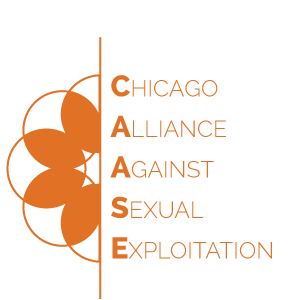Sex Trafficked Children Are Being Sent to Adult Prison – Here’s How We Stop It
Cyntoia Brown Long, Zephi Trevino, Chrystul Kizer, and Sara Kruzan may be familiar names. They’re from different states but their stories, which made national headlines, are similar. All of them were trafficked for sex as teens and prosecuted as adults for defending themselves against an abuser. Each was still a minor when they were tried as adults for murder. This injustice happens in legal systems that do not account for how trauma impacts survivors and punish their self-protection.
Targeted by Traffickers
Research shows that most people with experience in the sex trade started when they were minors, wanted a way out, and were harmed by it. Traffickers target young people, often from marginalized communities. They go after youth who are girls (mostly of color), LGBTQ+, in the foster system, survivors of abuse, experiencing economic and housing insecurity, disabled, or any combination of these. Making matters worse, Black girls and transgender children are less likely to be seen as child victims of gender-based violence, more likely to be hypersexualized and viewed as adults, and are often labeled criminals instead of offered support services. All this leaves kids from disadvantaged backgrounds at the greatest risk of being bought and sold for sex, and also with few options for getting help.
Effects of Being Trafficked
People in the sex trade are harmed in many ways and at staggering levels. Research shows that prostitution involves so much trauma that post-traumatic stress disorder (PTSD) is more common for people who’ve lived through it than for those who have lived through military combat. The trauma also leads to dissociation: a mental process where a person disconnects from their thoughts, feelings, memories, or sense of identity.
These facts should be taken into account when a youth sex trafficking survivor comes in contact with our justice system, including when they act in self-defense. They should be seen as child victims in need of support, protecting themselves from an abuser, instead of being punished in adult court as Cyntoia, Zephi, Chrystul, Sara, and many others have been.
Sentencing a Child as an Adult
Youth survivors are too often punished and revictimized in adult court instead of being treated with compassion. For example, children tried as an adult in Illinois are subject to much harsher penalties and less opportunity to heal and be restored to their families and communities. Judges often have to follow strict mandatory minimums tied to the conviction, including a life sentence for a youth who hasn’t even entered adulthood.
Laws Need to Change
Policy changes that help identify child victims of harm are key to creating safety for youth survivors. In 2010, CAASE created and led the campaign to pass the Illinois Safe Children Act, making our state the first in the nation to prevent youth under 18 from being prosecuted for “prostitution.” Like our partners at Rights4Girls, we know there is no such thing as a “child prostitute”. There are only youth survivors who need support and healing. Today, we continue in our leading role to protect youth survivors of sex trafficking.
We are advocating for the Prevent Unfair Sentencing of Youth Act, HB 3414 (Rep. Jiménez, Sen. Simmons). It will give judges more freedom to consider the context and impact of domestic violence, sexual violence, and sexual exploitation, and prevent the sentencing of youth as adults. If passed, it will help our state align with the human rights principles to foster the physical, psychological, and social recovery of child survivors of exploitation. The act will move us closer to a system where youth cases are examined in an age-appropriate, trauma-informed setting. You can learn more about the bill here and follow @theCAASE on social media for updates.
We hope our lawmakers in Illinois and throughout the country take action to support young survivors, spare them from extreme punishments, and give them the chance to heal and grow.
Update! HB 3414, the Prevent Unfair Sentencing of Youth Act, passed both chambers and is awaiting the Governor’s signature to become law.
Learn more about CAASE’s priorities for this legislative session here and our general public policy and advocacy work here. You can also stay engaged on issues critical to survivors by subscribing to CAASE’s newsletter or following us on Facebook, Twitter, LinkedIn, and Instagram.
CAASE published this piece on March 8, 2023. It was authored by Hayley Forrestal with input from Madeleine Behr and Tayler Mathews. Learn more about our staff here.



